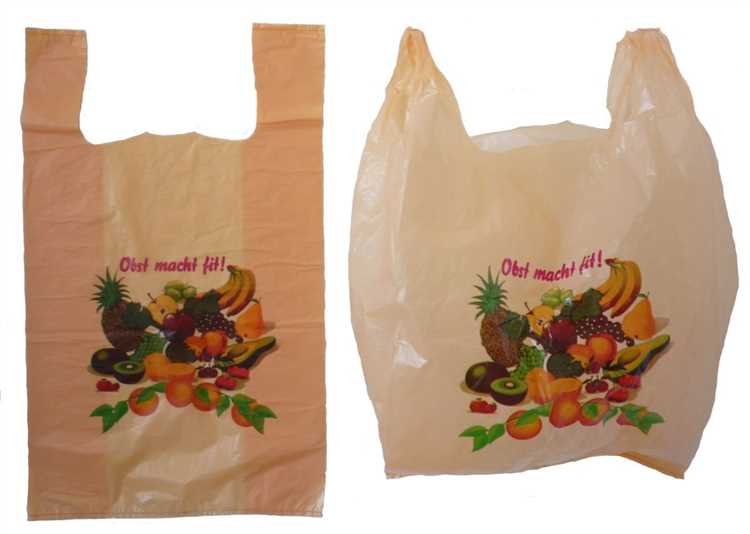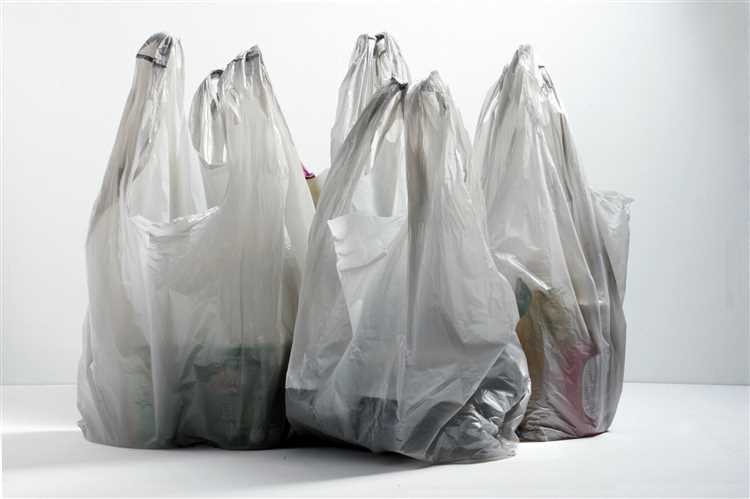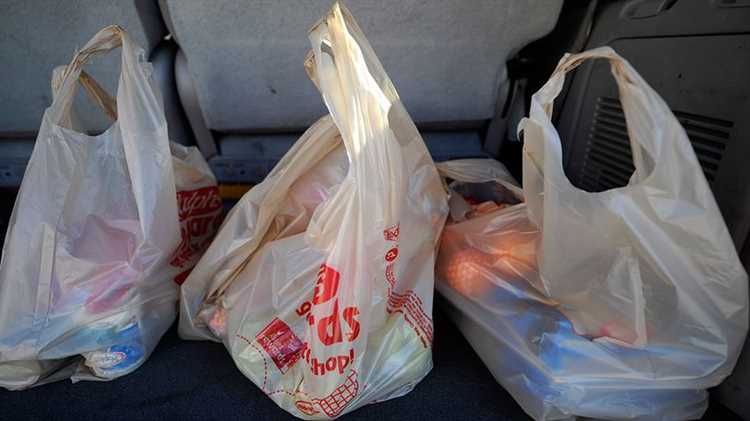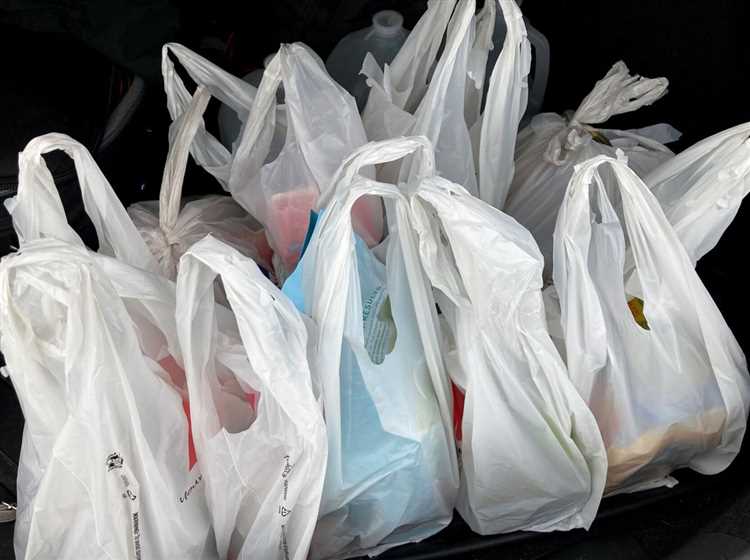Plastic grocery bags have become an integral part of our daily lives. They are convenient, lightweight, and seemingly harmless. However, it is important to consider their impact on the environment. Plastic bags are widely used around the world, but their disposal and degradation pose significant threats to ecosystems and wildlife.
The environmental impact of plastic grocery bags begins with their production. Most plastic bags are made from non-renewable resources, such as fossil fuels. The extraction and refining of these resources contribute to pollution, greenhouse gas emissions, and climate change. Additionally, the manufacturing process itself consumes a large amount of energy and water, further exacerbating environmental issues.
Once plastic bags are discarded, they often end up in landfills or littered in the environment. Landfills are already overflowing with waste, and the decomposition of plastic bags can take hundreds of years. As they break down, plastic bags release toxic chemicals into the soil and water, further polluting the surrounding environment.
Furthermore, plastic bags pose a threat to wildlife. Animals, both on land and in the water, can easily mistake plastic bags for food or become entangled in them. Many marine creatures, such as turtles, dolphins, and seabirds, have been found with plastic bags in their stomachs or wrapped around their bodies, leading to severe injuries or even death. The presence of plastic bags in the environment disrupts ecosystems and threatens biodiversity.
- Are Plastic Bags Dangerous?
- The truth about plastic grocery bags and their impact on the environment
- Extent of plastic bag usage
- Alternatives and solutions
- Understanding the Environmental Impact
- An in-depth look at the negative effects of plastic bags on the planet
- Question-answer:
- How do plastic grocery bags harm the environment?
- What are some alternatives to plastic grocery bags?
- Are there any benefits to using plastic grocery bags?
- What can individuals do to reduce the use of plastic grocery bags?
- Is recycling plastic grocery bags an effective solution?
- Are plastic grocery bags harmful to the environment?
Are Plastic Bags Dangerous?

Plastic bags have become a prevalent part of our daily lives, but their environmental impact cannot be ignored. While plastic bags are convenient and affordable, they pose various dangers to our planet and ecosystems. Here are a few reasons why plastic bags are considered dangerous:
- Marine Life Threat: Plastic bags are a significant threat to marine life. When they end up in oceans and waterways, marine animals often mistake them for food, leading to ingestion and suffocation. Additionally, plastic bags can entangle marine animals, causing injuries and even death.
- Persistent Pollution: Plastic bags are not biodegradable and can persist in the environment for hundreds of years. As a result, they contribute to long-term pollution, taking up valuable space in landfills and littering natural landscapes. The decomposition of plastic bags also releases harmful chemicals into the soil and water, further polluting the environment.
- Resource Depletion: The production of plastic bags relies heavily on fossil fuels, contributing to the depletion of non-renewable resources. The extraction, refinement, and transportation processes associated with plastic bags also generate greenhouse gas emissions, exacerbating climate change.
- Aesthetic Impact: Plastic bags littering streets, parks, and other public spaces not only detract from the natural beauty of the surroundings but also create a sense of neglect and poor environmental stewardship. Their presence can reduce property values and discourage visitors, negatively impacting local economies.
- Health Risks: Plastic bags can pose health risks when they break down into microplastics. These tiny particles can enter the food chain, potentially contaminate the food we consume, and have adverse effects on human health.
Considering the numerous dangers associated with plastic bags, it is crucial to reduce their usage and find more sustainable alternatives. By using reusable bags, recycling plastic bags correctly, and advocating for policies that regulate or ban single-use plastic bags, we can minimize their harmful impact on the environment and protect our planet for future generations.
The truth about plastic grocery bags and their impact on the environment

Plastic grocery bags have become a staple in our everyday lives. They are convenient, lightweight, and easily disposable. However, their impact on the environment is far from negligible. It is crucial to understand the truth behind plastic grocery bags and their consequences.
Extent of plastic bag usage

The usage of plastic grocery bags is staggering. Every year, millions of plastic bags are consumed globally. This massive consumption contributes to the alarming pollution levels plaguing our planet.
Environmental consequences
Plastic grocery bags pose a significant threat to wildlife and marine ecosystems. When discarded improperly, these bags often end up in waterways, ultimately polluting oceans and endangering marine life. Sea creatures mistake them for food or get entangled, leading to injury or death.
Furthermore, plastic bags take centuries to decompose naturally. They break down into microplastics, which are then consumed by marine organisms. These microplastics can easily enter the food chain, causing harm to both aquatic life and humans who consume seafood.
Plastic bags also contribute to carbon emissions and energy consumption. The production of plastic bags requires enormous amounts of fossil fuels, contributing to greenhouse gas emissions and exacerbating climate change.
Alternatives and solutions

To address the detrimental effects of plastic grocery bags, it is crucial to adopt more sustainable alternatives. Encouraging the use of reusable bags made of materials like cotton or canvas is a simple yet effective solution. Many stores offer incentives or discounts for customers who bring their own bags, promoting this eco-friendly habit.
Government regulations and policies can also play a pivotal role in reducing plastic bag usage. The implementation of taxes or bans on plastic bags has already proved successful in some regions, significantly reducing their consumption.
In conclusion
Plastic grocery bags may seem innocuous, but their environmental impact is undeniable. It is essential for individuals, businesses, and policymakers to comprehend the truth about plastic grocery bags and take necessary actions to minimize their usage. By embracing sustainable alternatives and implementing effective regulations, we can make a positive difference in preserving our environment for future generations.
Understanding the Environmental Impact
Plastic grocery bags have a significant environmental impact that stems from their production, use, and disposal. Understanding this impact is crucial for making informed decisions about their usage and finding sustainable alternatives.
The production of plastic bags involves the extraction of non-renewable resources such as oil and natural gas, which contribute to greenhouse gas emissions and deplete valuable resources. Additionally, the manufacturing process requires large amounts of energy and water, further straining the environment.
Once in use, plastic bags have negative effects on wildlife and ecosystems. Improper disposal or littering can result in them ending up in oceans, rivers, and other natural habitats. Marine animals often mistake plastic bags for food and ingest them, causing internal injuries, illness, and even death. The accumulation of plastic debris also poses a threat to the overall health of ecosystems, disrupting the food chain and damaging natural habitats.
Plastic bags take hundreds of years to decompose, and while they do, they break down into smaller microplastics that can easily contaminate soil and water. These microplastics not only harm wildlife but also have the potential to enter the human food chain, as they can be consumed by fish and other seafood that humans eventually consume. The long-term impact of plastic bags on human health is still being studied, but the presence of microplastics in our environment raises concerns about their potential negative effects.
Understanding the environmental impact of plastic grocery bags is vital in making sustainable choices and taking action to reduce their usage. By opting for reusable bags or choosing alternatives such as paper or biodegradable bags, individuals can help mitigate the adverse effects on the environment and work towards a more sustainable future.
An in-depth look at the negative effects of plastic bags on the planet

Plastic bags have become ubiquitous in our society, with billions being used and discarded every year. However, the convenience they provide comes at a high cost to the environment.
- One of the most pressing issues with plastic bags is their contribution to pollution. Many of these bags end up in landfills or as litter in our oceans, where they can take hundreds of years to decompose. This leads to the release of harmful chemicals and microplastics into the environment, which can have devastating effects on wildlife and ecosystems.
- In addition to pollution, the production of plastic bags also has a significant impact on our planet. The process of creating plastic bags requires large amounts of fossil fuels, which contributes to greenhouse gas emissions and climate change. Furthermore, the extraction of these fossil fuels often involves destructive practices like drilling and fracking, which further degrade the environment.
- Plastic bags are also a major threat to marine life. Marine animals often mistake plastic bags for food and can accidentally ingest them, leading to serious health issues or even death. The presence of plastic bags in our oceans also poses a danger to seabirds and turtles, who can become entangled in the bags and suffocate or drown.
- Furthermore, the production of plastic bags requires vast amounts of water and energy, further straining our natural resources. This puts additional pressure on already limited freshwater supplies and contributes to global warming.
Efforts to reduce the negative impact of plastic bags on the planet have been made, such as the implementation of plastic bag bans or taxes in various countries. However, more needs to be done to address this pressing environmental issue. Individuals can make a difference by opting for reusable bags and supporting alternative packaging solutions.
It is clear that plastic bags have a detrimental effect on the planet, from pollution and climate change to the endangerment of wildlife. By understanding the negative consequences of plastic bags and taking action to reduce their use, we can work towards a more sustainable future.
Question-answer:
How do plastic grocery bags harm the environment?
Plastic grocery bags harm the environment in several ways. Firstly, they are made from non-renewable resources like petroleum, which contributes to climate change. Secondly, these bags are not biodegradable and can take hundreds of years to decompose in landfills. Finally, plastic bags often end up in our oceans and waterways, causing pollution and harming marine life.
What are some alternatives to plastic grocery bags?
There are several alternatives to plastic grocery bags that are more environmentally friendly. Some options include using reusable cloth bags, paper bags, or biodegradable bags made from materials like cornstarch. These alternatives help reduce waste and lessen the environmental impact caused by plastic bags.
Are there any benefits to using plastic grocery bags?
While plastic grocery bags are convenient and lightweight, there are limited benefits to using them. They are often free at stores, making them a popular choice for consumers. However, these benefits are outweighed by the negative environmental impact of plastic bags, such as pollution and harm to wildlife.
What can individuals do to reduce the use of plastic grocery bags?
Individuals can take several steps to reduce the use of plastic grocery bags. Firstly, they can bring their own reusable bags when shopping. This helps eliminate the need for plastic bags altogether. Secondly, individuals can ask for paper bags at the store, as these are often more biodegradable. Finally, individuals can support efforts to ban or reduce the use of plastic bags in their communities by advocating for local legislation.
Is recycling plastic grocery bags an effective solution?
While recycling plastic grocery bags is better than simply throwing them away, it is not a perfect solution. The recycling process for plastic bags can be energy-intensive and has its own environmental impact. Additionally, many bags end up not being recycled and become pollution. Therefore, reducing the use of plastic bags and finding alternative solutions is a more effective approach to reducing their environmental impact.
Are plastic grocery bags harmful to the environment?
Yes, plastic grocery bags are harmful to the environment. They are not biodegradable and can take hundreds of years to decompose. When they end up in landfills or are improperly disposed of, they can contaminate soil and water sources. Additionally, the production of plastic bags requires the use of fossil fuels, which contributes to greenhouse gas emissions and climate change.